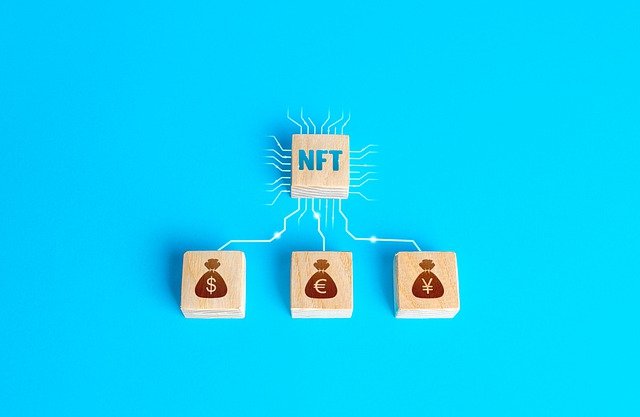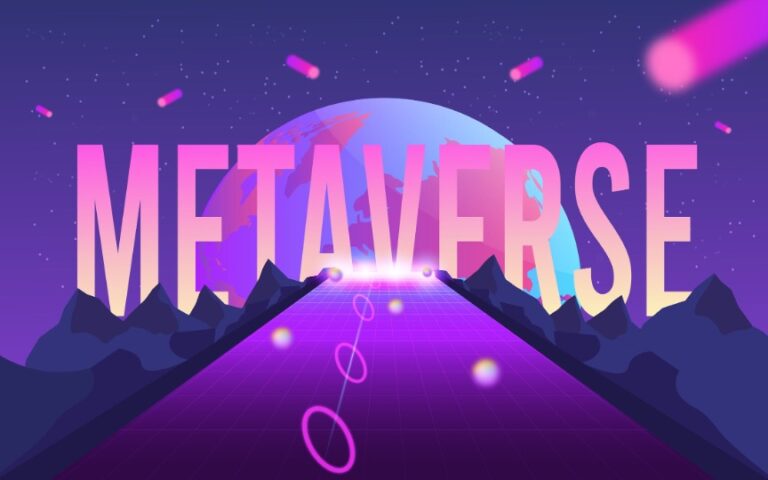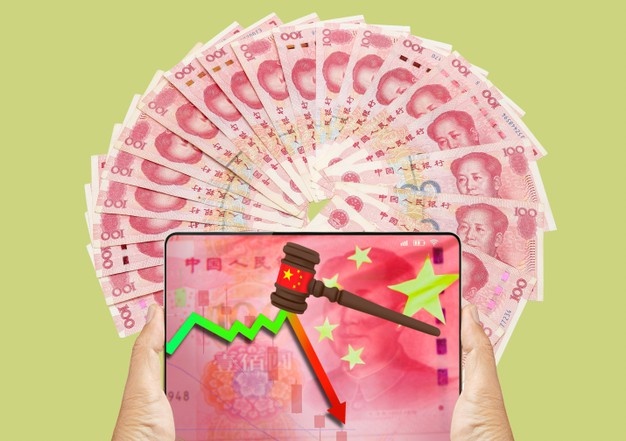The most widely known application of blockchain technology is cryptocurrencies such as Bitcoin and Ethereum, however, NFT (Non-Fungible Tokens) has become increasingly popular since the beginning of 2021. It has attracted a wave of venture capital funds, allowing traceable digital goods to obtain unimaginable speculative value. The NFT market in China is still in the exploratory stage but has great growth potential as more and more Chinese players are showing interest in NFTs.
What is an NFT?
An NFT, non-fungible token, is a unit of data stored and secured on blockchain to represent digital assets such as music, art, collectibles, or in-game items. NFTs are indivisible, irreplaceable, and unique. Different from fungible assets like bitcoin, an NFT cannot be substituted. Compared with a physical asset, a token is secured and highly encrypted for the digital asset to be authenticated on the blockchain. In summary, NFT is a digital asset that represents real-world objects, which is reflected in the digital market through crypto technology and blockchain database.
The market development of NFTs
After the release of CryptoKitties in 2017, NFT was known to the public for the first time. Cryptokitties is a decentralized application released on Ethereum where users can raise, buy, sell and breed electronic cats. As each digital cat on Cryptokitties is unique and non-substitutable, so it qualifies as a non-fungible asset. Till now, the platform has over 20,000 transactions with the buying and selling of electronic cats and an estimated volume of trade of $3.3 million.
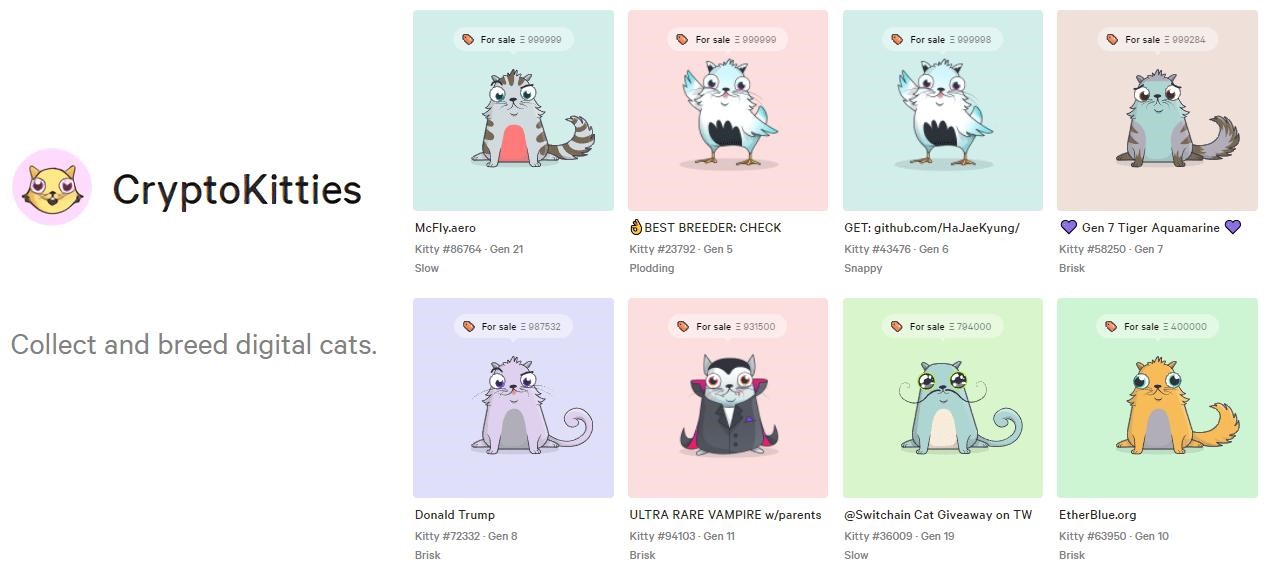
CryptoKitties promotes NFT to rapid development. According to data of ChainNews, from 2018 to 2020, the size of the NFT market has increased by 825%, the number of active addresses has increased by 201%, buyers for NFT-based products have increased by 144%, and sellers have increased by 113%. Although the trading volume of the NFT market is relatively small compared with other cryptocurrency markets, its development trend is significant.
Since 2021, NFT has benefited from the prosperity of the DeFi ecosystem. According to data from NoFungible (excluding NBA Top Shots and Nifty Gateway data), the NFT market transaction volume in Q1 2021 alone has reached US$2 billion, exceeding 8 times in 2020.
The NFT market in China
It’s no doubt that the development of NFTs in China lags behind the West, partly because of the strict restrictions on cryptocurrencies imposed by the Chinese government and partly because of the limited understanding and spreading of the emerging industry. However, NFTs are becoming a hot topic in the Chinese crypto community in 2021 and many enthusiasts are experimenting in various fields and trying to make momentum.
Chinese NFTs in the art industry
Due to the unique and secure character of NFT, one of the biggest markets that it can play a role is in arts. In the past, digital art has been hard to monetize mainly because it’s often difficult to declare certain artworks’ ownership. With the technology of NFT, artworks stored on the blockchain are now tradable.
UCCA (Ullens Center for Contemporary Art) Labs in Beijing welcomed its first-ever crypto art exhibition: Virtual Niche—Have you ever seen memes in the mirror? from March 26th to April 4th 2021. The exhibition was the starting point that crypto art and NFTs entered China’s main art scene. It has attracted extensive attention and reports from domestic and overseas media aroused enthusiasm for discussions in the fields of art, the Internet, and finance. The exhibition works include the famous Beeple’s digital collage “Everydays: The First 5000 Days”, sold for $69.38 million at Christie’s auction in March.
The sales generated by this exhibition are not yet available but it’s obvious that more people are now paying attention to this niche area in China and NFTs are believed to become another hot spot in the market after DeFi, and will truly bring blockchain into the lives of the public.
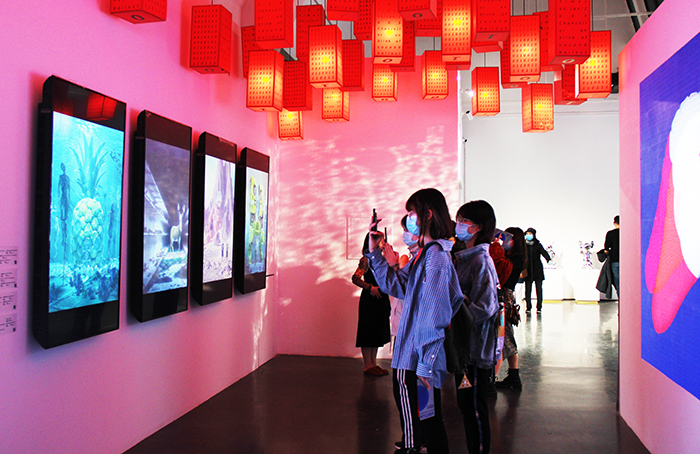
Chinese NFTs in the gaming industry
Dragon City appeared in 2017, the creator was Metaverse Labs, a team in Guangzhou. It is a virtual city with deep Chinese traditional cultural connotation. Dragon City exists on Decentraland, the largest virtual world akin to Second Life based on the Ethereum blockchain. It is devoted to showing the world the long-standing Chinese culture and civilization in the virtual world which links past, present, and future.
Dragon City is currently the largest blockchain virtual world in China and the first virtual world to showcase Chinese cultural themes to the blockchain circles around the world.
Dragon City was first opened to the public in July 2020. In Decentraland, the emergence of Dragon City represents a growing group of Chinese crypto game players who are not only eager to participate in global NFT activities but also want to contribute to this promising industry.

Capital is always in the pursuit of big potential and profitable areas. Block Create Art (BCA) is China’s first crypto art brand that focuses on the research, creation, scholarship, and promotion of crypto art. BCA and its encrypted art NFT trading platform BCAEX received US$2 million in angel round investment, making it China’s best-funded NFT community.
Chinese NFTs in the financial industry
Candaq Fintech Group is a technology holding group focusing on the incubation of fintech and blockchain projects, through investment, mergers, and acquisitions, and reorganization of the most promising financial technology projects in the world. The group’s grand vision is to “redefine the Fintech”. Candaq led the organization of NFT’s first domestic investment roadshow in Wuhan in December 2020.
IOSG Ventures is a research-driven early-stage venture firm across China, the US, and Singapore, focusing on open finance, Web 3.0, and infrastructure for a decentralized economy like NFT. It invests in very early projects in the fields of financial technology, blockchain, and cryptography. IOSG builds a chain of developer communities + sponsor academic research laboratories + media channels, and help the most aspiring founding teams to achieve success.
CryptoYC focuses on investment incubation in the fields of blockchain, DeFi, financial infrastructure, Web3, anonymous privacy, etc. It has developed the CryptoYC Benchmark, a technical due diligence system for blockchain projects, and provides consulting services such as due diligence of blockchain projects for institutions and other professional investors. The core team is in Shanghai, Germany, the Netherlands, etc.
How are brands participating?
Although there are many uncertainties caused by policies, some pioneering brands and individuals don’t want to miss the NFT bandwagon.
Luxury brands
RTFKT, founded in 2020, focuses on creating viral sneaker designs, memes, and collectible exclusives. It makes use of the latest in-game engines, NFT, blockchain authentication, and AR, combined with manufacturing expertise to create one-of-a-kind sneakers and digital artifacts. RTFKT is the first luxury brand operating in the NFT space. During the Lunar Chinese New Year holiday in January 2021, the brand designed a unique, pure gold virtual sneaker, which bacame a part of auction and got a price of $28,000 on the Chinese digital marketplace Treasureland. Other well-known and classic luxury brands such as LVMH and Gucci are seeking new ways to provide NFT products through commercial collaborations. For example, LVMH partnered with League of Legends to generate profits from in-game purchases by creating co-branded character skins. Such ways of acquiring digital assets are leading most of the brands in China to create real-world impact.
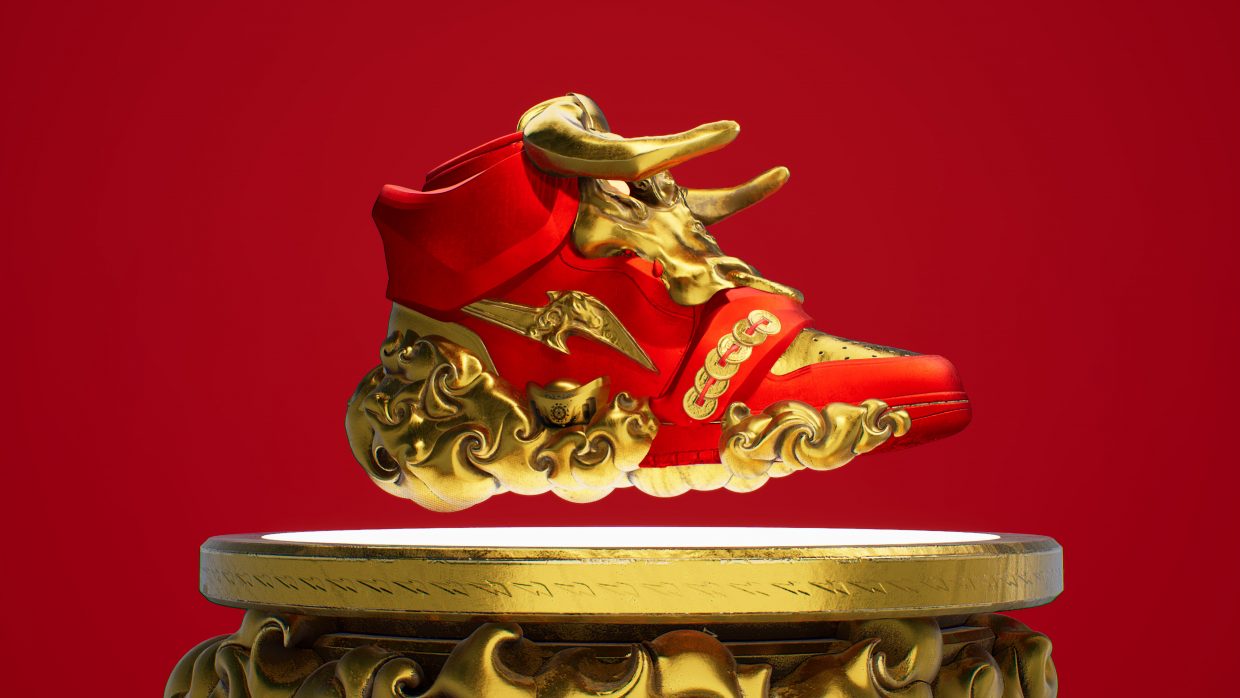
Music
A well-known Chinese singer A Duo released her first domestic NFT digital music work “WATER KNOW” in May 2021. The digitally encrypted song was using NFT technology, and the cover and song signature rights became a public welfare during the auction with a final transaction price of RMB 304,271. Because the NFT has characteristics of “cannot forge” or “cannot tamper with records”, all processes are traceable, open, and transparent, thus increasing the reliability of the system. The combination of digital music and blockchain technology also represents a breakthrough for traditional music distribution.
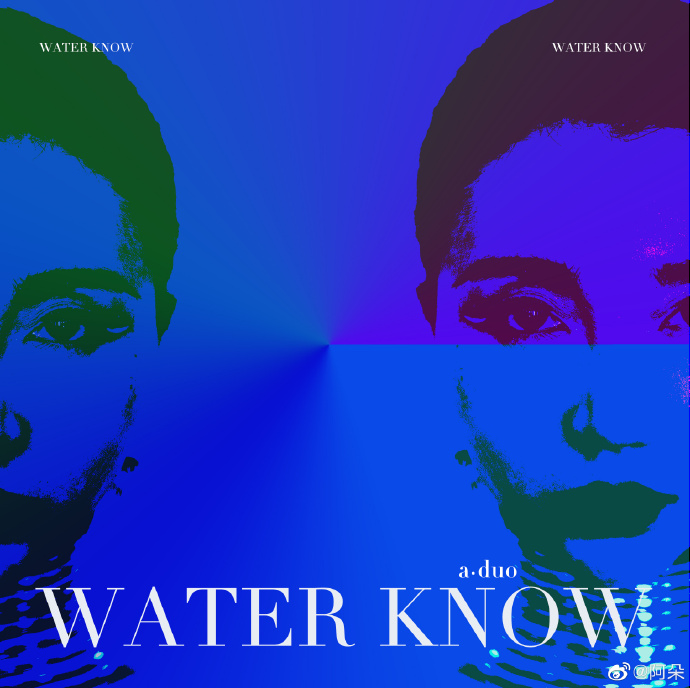
Arts
With the trend of NFT and crypto gaining an increasing momentum, many contemporary art companies have been participating actively in the market, trying to create an ecosystem that is suitable for a new generation of collectibles and digital arts. More crypto art exhibitions are planning to show in Beijing and Shanghai and there are more Chinese NFT exhibits which customers buy for a good price. In addition, many companies are recognizing the talent and potential of crypto artists, offering to fund their artwork creation process. For instance, Chen, a crypto artist in Beijing, has claimed that since 2020, two companies are approaching him to provide support and funds for him to finish his artwork.
Everything can turn into NFT, like intellectual property rights, physical assets, records and identifications, financial documents, tickets, and games. The prospects of the NFT market in China are promising, especially the value and application of rare collections, as well as the promotion of the development of digital patents and copyright registration, which are of great significance.
Uncertainties and concerns of NFTs in China
The NFT market in China still lacks in maturity
There is still a long way to go for the Chinese NFT market to grow and develop given that the same market is relatively mature in the West. Right now, most efforts into popularizing NFTs are focusing on developed cities, which are open to new cultures, but the majority of the country is still behind. Many NFTs are also currently in a state of ultra-high valuations, attracting a lot of investors and hot money inflows, which is more like speculative behavior. Players need to be careful of bubbles.
Chinese authorities keep a tight leash on digital assets
Since the regulations in China are strict about cryptocurrency and digital assets, government policy might stand in the way of large-scale NFT adoption. More likely, producing and holding NFT assets will become a norm in Chinese law, however, when it comes to “NFT transaction”, there will be some potential problems. For example, if centralized bidding, market-making, standardized contracts occur and there is more than 200 equity holders, it may violate the regulatory documents issued by the General Office of the State Council.
When the fair value of cultural works of art is not high, but their price is, the Chinese law will consider them as suspect of fraud; If the rights and interests of the product have equal shares or exist as an options, the Chinese law will likely evaluate their actions as suspected of illegal business operations. Since the Chinese regulatory authorities have not yet granted operating licenses for the objectively existing virtual currency field, there will not be real-name requirements and restrictions on opening accounts for people, which may create room for money laundering activities.
Key takeaways about the NFT market in China
- The NFT market in China is developing at an unprecedented speed with extensive discussions and high valuation, especially in 2021.
- The NFT fever is spreading in China, especially in arts, gaming, and investment fields, but it is still a niche and the Chinese NFT players still have a lot of catchup work to do compared to their western counterparts.
- There are still many uncertainties ahead in terms of NFT development in China due to the country’s special political landscape.
- The NFT market is unstable and not yet mature, with lots of speculative factors, so players have to watch out for bubbles.
Author: Nana Sun


